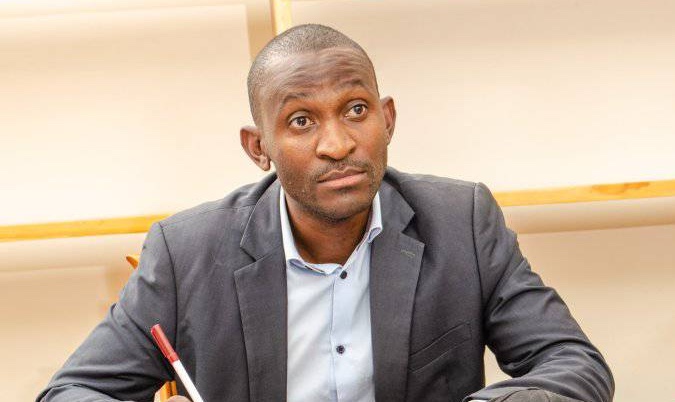Emakhandeni-Luveve legislator Discent Bajila is advocating for the promotion of marginalised languages in Zimbabwe, calling for several interventions such as the Amendment of Education Act that will promote teaching of such languages outside areas they are commonly used as the mother language in the country.
Bajila said the Ministry of Primary and Secondary Education must amend Section 62 of the Education Act of 1987 and include other official languages in schools, as recognised in Section 6 of Zimbabwe’s Constitution, in the same way as Ndebele, Shona and English.
“Section 6.1 of the Constitution says the State must promote those languages. Today we are at a point where our state infrastructure and our statecraft have serious prominence for only three languages yet we have 16 official languages,” he said.
“If I am going to visit Government offices in Binga, there is no insignia in Tonga. If I go to Chiredzi, there is no insignia in Shangani. If I go to Chipinge, there is no insignia in Ndau yet in terms of our Constitution, the importance of Ndau and English are the same,” he said.
“All our 16 languages must be given that kind of prominence even as we direct our people in terms of where to go to get Government Services.”
Bajila also suggested that Zimbabwe should undertake a study visit to other countries and see what they have done to promote numerous official languages.
“This could be done by the Portfolio Committee on Primary and Secondary Education or Sports, Arts and Recreation because some of the issues belong to the National Arts Council,” he said, citing Ethiopia which has done well in promoting its 12 official languages.
“India also has a Commission on the official languages and has a Permanent Committee of Parliament which looks into issues of the official languages of India.
“There is also the Pan South African Language Board across the Limpopo which focuses on the official languages of South Africa and does a lot of work around them.”
Outside of the global South, Bajila stated that Switzerland has a Federal Act on National Languages of the Swiss People, and Finland has a state-supported institute for Finnish languages to protect, promote and develop its languages.
The lawmaker recalled that in 2022, numerous language organisations, including the Ndau Language Promoters Association and the iSiNdebele Language Promoters Association, met with the government in Victoria Falls at the Elephant Hills to develop a draft Language Policy.
He stated that the draft Language Policy should be hastened with the goal of evolving it into a National Languages Promotion Act of Zimbabwe.
“That way, we will have various instruments of acting and developing our languages,” he said.
Bajila further proposed establishing a statutory body for the development and promotion of Zimbabwean languages.
“If possible, consider the promotion of Zimbabwe Indigenous Languages Promoters Association (ZIPLA) into a statutory status. Those who participated in the Constitution making process like myself, will be aware of the work that ZILPA played in sensitising our communities on the importance of participation in the process, and also in assisting the Government to make sure that the Zimbabwe’s Constitution is translated into our numerous languages,” he said.
“A statutory body for the development and promotion of our languages will be an absolute necessity as we move forward.”
Bajila said there is also a need to amend the Education Act of 1987 to improve the recognition of previously marginalised languages.
“In 2020, an amendment to that Act was made. The amendment was to the effect that all schools should find space to teach all languages. I think it was a good aspiration but somehow an impossibility in the sense that we have 16 official languages of Zimbabwe and this means that if we were to be able to satisfy this need of the Education Act, we will have to teach all the 16 official languages in all the schools of Zimbabwe and thereafter, teach other subjects like geography, history, mathematics, physics and so forth,” he said.
“ That would give our kids independence on the subjects that they go to school for. We might need to revisit the Education Act of 1987 to make it possible to deliver this necessary development in our country.”
One instrument that can be used as an amendment is to request that the Minister of Primary and Secondary Education revise Circular 4 of 2024, which limits the number of subjects that every O’ level student must take to eight to nine.
“When it goes to nine, we make it mandatory that the ninth one becomes a previously marginalised language. The eighth that the Minister sought to put continues to be as it were, then we have the ninth one which becomes a previously marginalised language,” Bajila said.
In order to do so, the lawmaker said consultations would be needed with parents and stakeholders.
“I also call upon the Government to put more effort in the Khoisan language. It is important to focus on Khoisan because whatever we say, however we view the history of Zimbabwe, at the end of the day all of us found the Khoisan people here and today their language is facing extinction,” Bajila said, emphasising that Khoisan is the oldest language in Zimbabwe.

